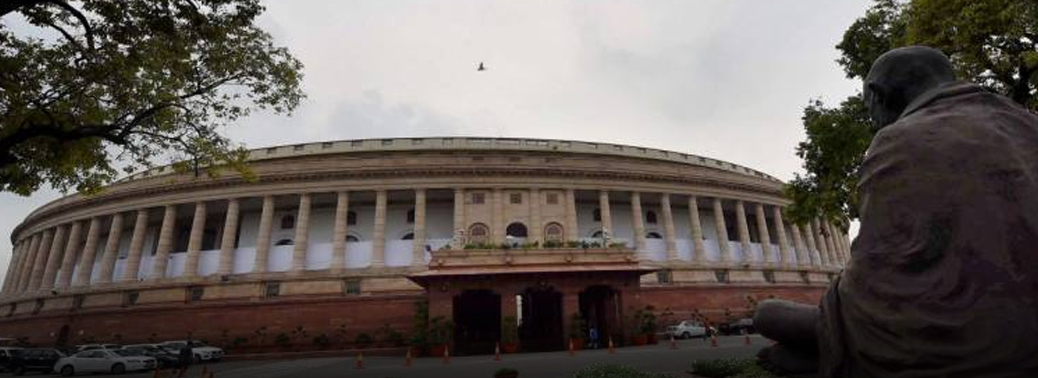PARLIAMENTARY STANDING COMMITTEES
22, Jul 2019

Prelims level : Polity- Parliament; State Legislature
Mains level : GS-II- Parliament and State Legislatures – structure, functioning, conduct of business, powers & privileges and issues arising out of these.
What to study?
- In the backdrop of a number of Bills having been passed without scrutiny, why are parliamentary standing committees necessary?
Background:
- Eleven of the 22 Bills introduced in the ongoing session of Parliament have been passed, which makes it a highly productive session after many years.
- But these Bills have been passed without scrutiny by Parliamentary Standing Committees, their purpose being to enable detailed consideration of a piece of legislation.
- After the formation of the 17th Lok Sabha, parliamentary standing committees have not been constituted as consultations among parties are still under way.
- Partly as a result of this, the Bills were passed without committee scrutiny. They were discussed in Parliament over durations ranging between two and five hours.
Why Are Parliamentary Committees Necessary?
- In a parliamentary democracy, Parliament has broadly two functions, which are law-making and oversight of the executive branch of the government.
- Committees are an instrument of Parliament for its own effective functioning.
- Given the volume of legislative business, discussing all Bills under the consideration of Parliament in detail on the floor of the House is impossible.
- In principle, the assumption is that the smaller cohort of lawmakers, assembled on the basis of the proportional strength of individual parties and interests and expertise of individual lawmakers, could have more open, intensive and better-informed discussions.
- Committee meetings are ‘closed door’ and members are not bound by party whips, which allows them the latitude for a more meaningful exchange of views as against discussions in full and open Houses where grandstanding and party positions invariably take precedence.
- Disruptive changes in technology and the expansion of trade, commerce and economy in general throw up new policy challenges that require a constant reform of legal and institutional structures.
- While law-making gets increasingly complex, lawmakers cannot infinitely expand their knowledge into ever expanding areas of human activities. For instance, we live in an era of metadata being generated by expanding connectivity.
- The laws and regulations that are required to govern a digital society cannot be made without highly specialised knowledge and political acumen.
- Members of Parliament may have great acumen but they would require the assistance of experts in dealing with such situations. It is through committees that such
- expertise is drawn into law-making. Executive accountability to the legislature is enforced through questions in Parliament also, which are answered by ministers.
- However, department standing committees go one step further and hear from senior officials of the government in a closed setting, allowing for more detailed discussions. This mechanism also enables parliamentarians to understand the executive processes closely.
What Are the Types of Committees?
- Broadly, they are of two kinds: ad hoc committees and the permanent committees.
- Ad hoc committees are appointed for a specific purpose and cease to exist when they finish the task assigned to them and submit a report.
- The principal ad hoc committees are the select and joint committees. There are some other ad hoc committees too, but they handle different issues such as privileges, ethics, security, government assurances and food management.
- Besides, Parliament has permanent committees called the standing committees. Most Bills, after their introduction, get referred to department-related standing committees, which are permanent and regular bodies.
- The idea behind these committees, first set up in 1993, is that with Parliament working for a limited day in a year, Bills, which deal with technical and policy matters, need to be discussed in detail, after taking the view of diverse stakeholders and experts.
- While referring a Bill to a standing committee, the Chairman or the Speaker may specify the time within which it has to submit its report.
The joint committees and standing committees become defunct after the dissolution of the Lok Sabha.
What Are Its Origins?
- As is the case with several other practices of Indian parliamentary democracy, the institution of Parliamentary Committees also has its origins in the British Parliament.
- The first Parliamentary Committee was constituted in 1571 in Britain.
- The Public Accounts Committee was established in 1861. In India, the first Public Accounts Committee was constituted in April 1950.
- According to P.D.T. Achary, former Secretary General of the Lok Sabha, “The practice of regularly referring bills to committees began in 1989 after government departments started forming their own standing committees.
- Prior to that, select committees or joint committees of the houses were only set up to scrutinise in detail some very important bills, but this was few and far between.






